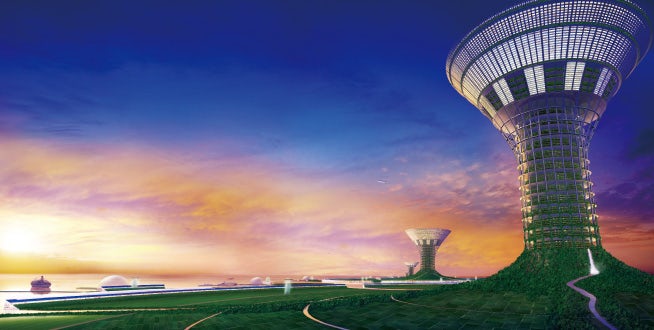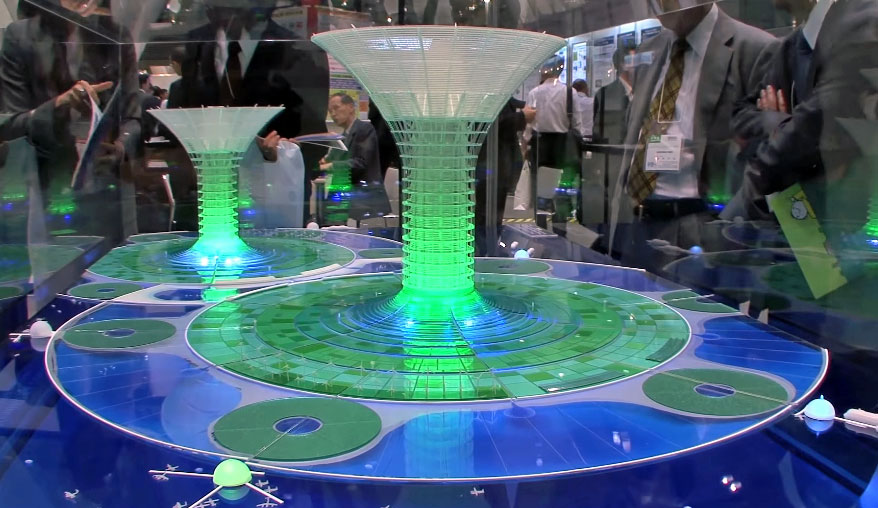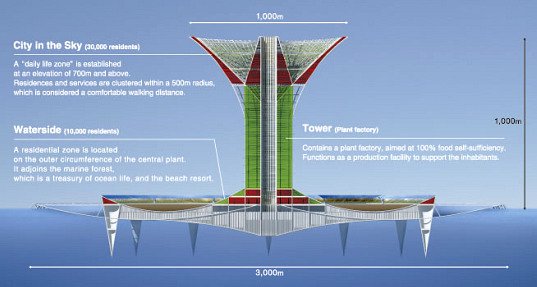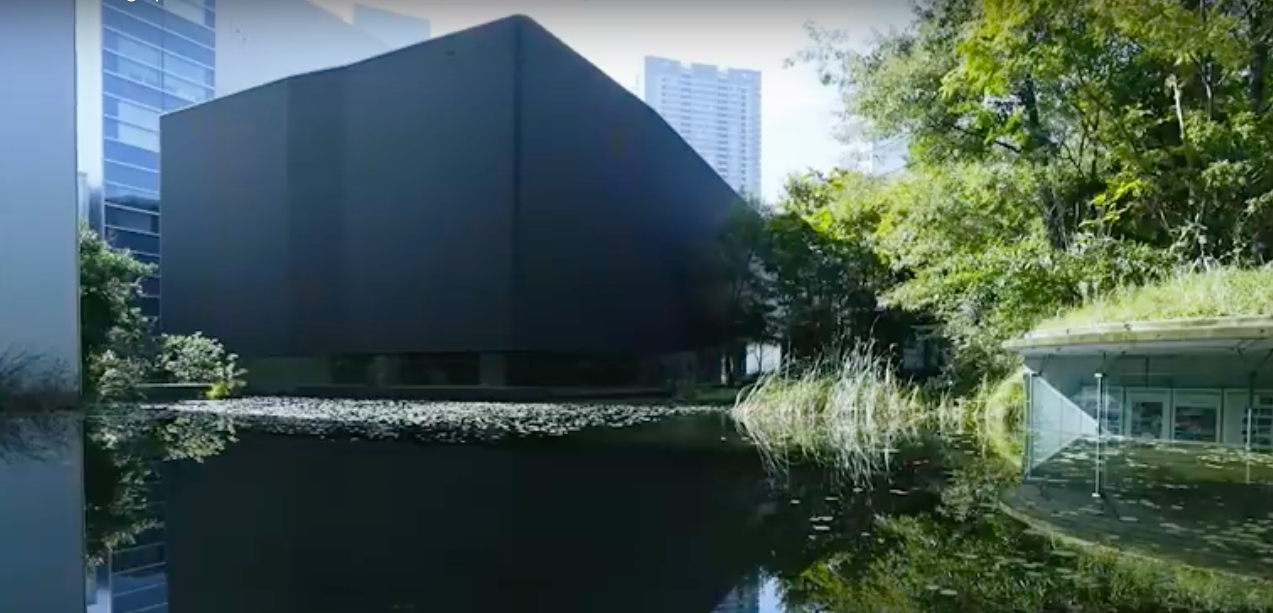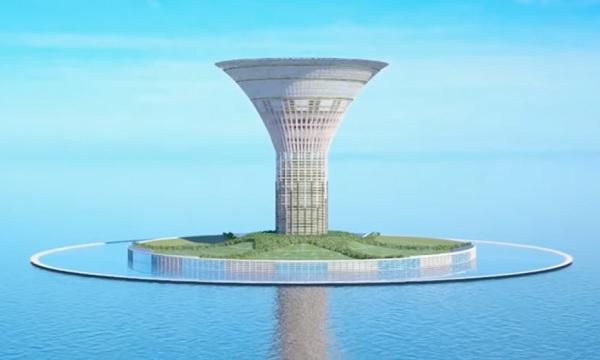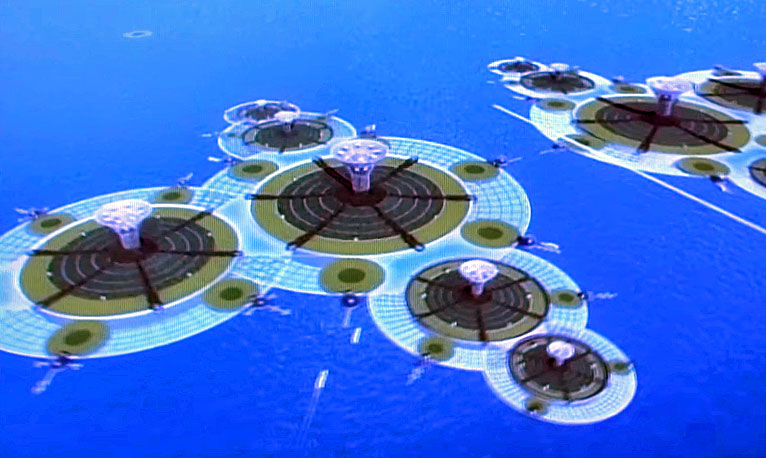Singapore May Have Eco-Friendly Floating Cities In A Decade To Overcome Land Shortage
"The technology required could be realised here and now."
The Lion City could be looking like a scene right out of a sci-fi movie in a decade's time, as a Japanese engineering team is proposing to launch floating cities in Singapore
Shinichi Takiguchi, the managing executive officer at construction giant Shimizu Corporation, is part of a team working on building a floating city for more than 50,000 people, Channel NewsAsia reported.
With Singapore's calm equatorial waters, he revealed that the island nation is one of the most ideal locations in the world for such an undertaking.
"The technology required could be realised here and now," said Takiguchi, who is with Shimizu's Emerging Frontiers Division.
"I won't have to wait till my grandchildren's generation. I'll be able to see it while I'm still alive," he added.
The super structures envisioned by the Japanese team are called 'Green Floats', and look like the Supertree Grove in Gardens By The Bay
They are intended to house residences at the top section, offices in the middle section, and vegetable farms at the bottom, with beaches surrounding the structures.
The temperature at the top of the Green Floats would be a cool 26°C throughout the year, as the tower is set to be 1km in height. The base would be 3km in diameter.
Since the floating cities would be run on solar energy, they are expected to be self-sustainable and environmentally friendly.
Green Floats could reportedly help Singapore overcome its land shortage, as they would be constructed in the sea by utilising the buoyancy force of sea water
The structures would also be built to float with the ocean current, so it does not remain in one place and block out sunlight from penetrating the depths below.
Scientists at Shimizu's Institute of Technology in Tokyo have reportedly achieved breakthroughs in creating suitable concrete for structures on the sea.
They have also erected an experimental structure, half floating on water, to apply what they learn to building the Float.
If the project is confirmed, construction on one Green Float would take roughly 10 years
In 2010, Shimizu Corporation predicted the technology to be feasible by 2025.
The structures are expected to last 100 years once completed, Channel NewsAsia reported.
Based on Singapore's Land Use Plan, an additional 5,600 hectares of land is needed by 2030 to cater for a population expected to grow to between 6.5 and 6.9 million.
Economic Development Board managing director Chng Kai Fong revealed that that there will be no stone left unturned in efforts to overcome land scarcity.
"We're using every possible surface and expanding our options," he said on the show Land Unlimited.
